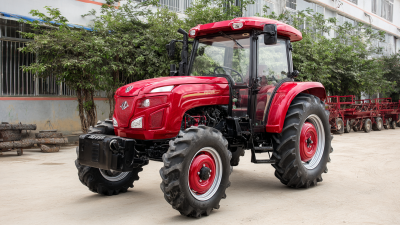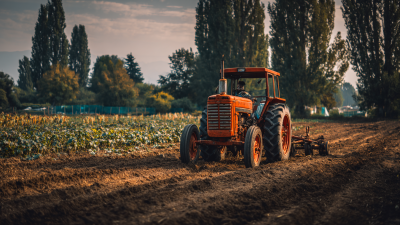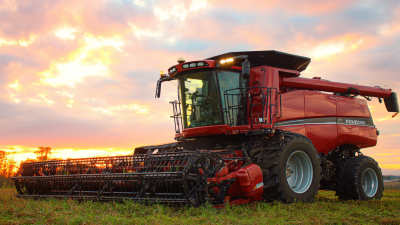In recent years, the agricultural industry has seen a significant shift towards sustainable practices, with mini farm tractors emerging as essential tools for farmers seeking efficiency and eco-friendliness. According to the U.S. Department of Agriculture, small-scale farming operations are becoming more prevalent, accounting for over 50% of the nation's farms and reflecting a growing trend towards localized food production. Mini farm tractors, which are compact and versatile, allow farmers to manage small to mid-sized plots with ease, improving productivity while reducing the carbon footprint associated with larger machinery. A report by the American Society of Agricultural and Biological Engineers highlights that the adoption of mini farm tractors can lead to a 30% reduction in fuel consumption compared to traditional tractors, showcasing their potential to enhance sustainability in agriculture. As farmers increasingly prioritize environmentally responsible methods, understanding the benefits of mini farm tractors can pave the way for a new era of sustainable agriculture.

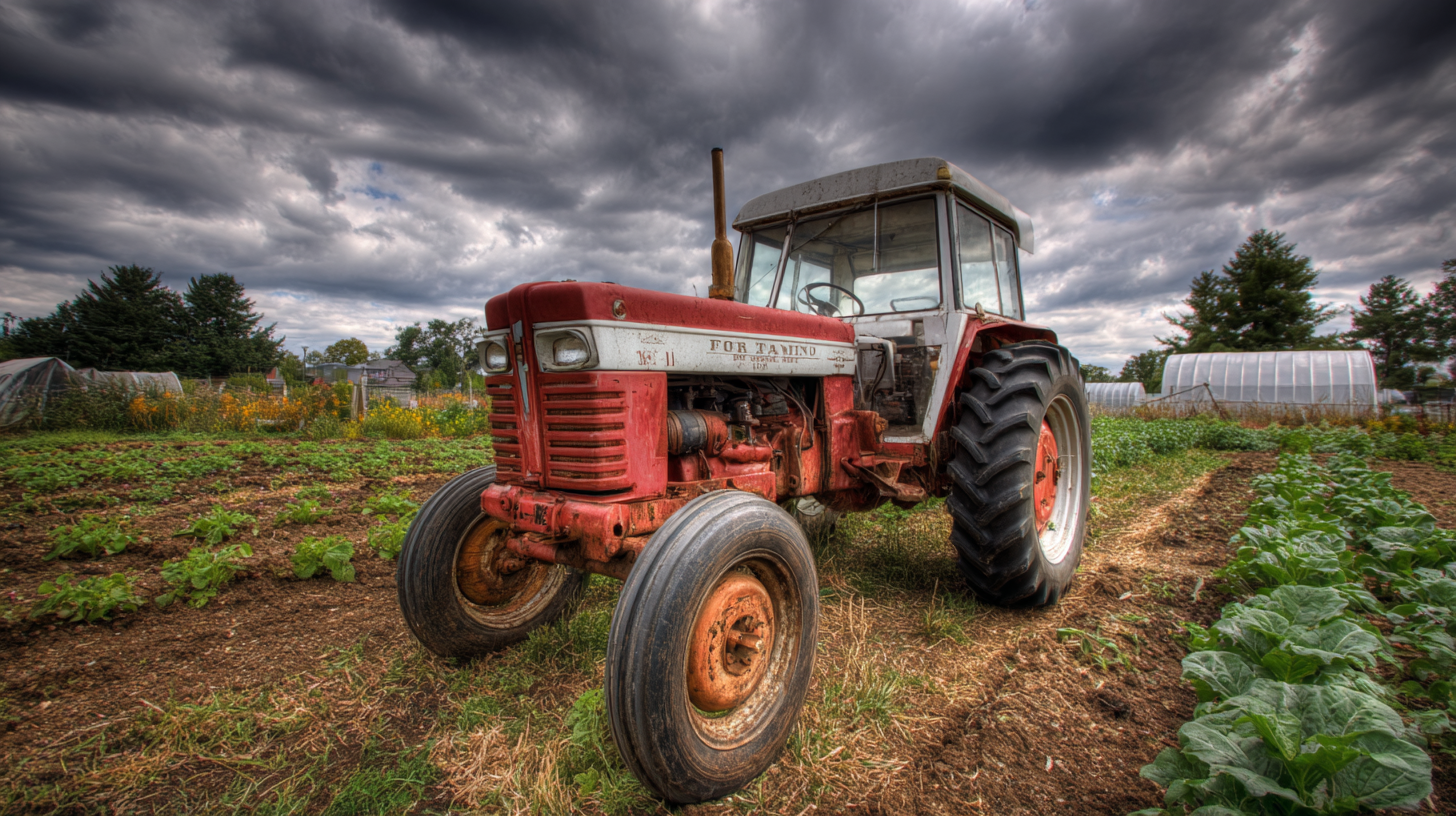 Mini farm tractors are increasingly recognized as invaluable tools in sustainable agriculture, particularly when it comes to enhancing crop yields through precision farming techniques. According to a report by the National Agricultural Statistics Service, farmers utilizing mini tractors have reported yield increases of up to 30% in certain crop types due to improved soil management and targeted input application. These compact machines enable farmers to operate in smaller fields where traditional tractors might not be economical, allowing for more efficient weed control and soil aeration.
Mini farm tractors are increasingly recognized as invaluable tools in sustainable agriculture, particularly when it comes to enhancing crop yields through precision farming techniques. According to a report by the National Agricultural Statistics Service, farmers utilizing mini tractors have reported yield increases of up to 30% in certain crop types due to improved soil management and targeted input application. These compact machines enable farmers to operate in smaller fields where traditional tractors might not be economical, allowing for more efficient weed control and soil aeration.
One of the standout advantages of mini farm tractors is their ability to facilitate precision agriculture practices, such as variable rate application of fertilizers and pesticides. By utilizing GPS technology and data analytics, farmers can apply inputs more judiciously, which not only boosts yield but also minimizes waste and environmental impact. The American Society of Agricultural and Biological Engineers reported that precision farming techniques can reduce fertilizer usage by as much as 20%, underscoring their contribution to sustainability. In this context, mini farm tractors serve as a game-changer, allowing farmers to adopt innovative practices that promote both productivity and environmental stewardship.
The adoption of mini farm tractors represents a significant shift towards more efficient and sustainable agricultural practices. As the global autonomous farm equipment market is anticipated to grow from $17.11 billion in 2024 to an impressive $55.32 billion by 2032, with a compound annual growth rate (CAGR) of 16.1%, it is evident that farmers are recognizing the benefits of advanced technology. Mini tractors, which are designed for greater labor efficiency, allow small-scale farmers to optimize their operations while reducing costs. With precise data showing that more than 60% of large farms are expected to integrate AI-powered precision agriculture technologies by 2025, the trend towards adopting mini tractors aligns perfectly with the evolution of agricultural practices.
Moreover, the increasing investment in AgTech, which is projected to generate revenues of US$18 billion in 2024, highlights the demand for innovative solutions among producers and farmers. The Smart Crop Mobility Market, valued at USD 5.5 billion in 2025 and forecasted to reach USD 19.9 billion by 2035, demonstrates a broader acceptance of technology among rural farmers, reinforcing the advantages of adopting mini tractors. By leveraging these compact and efficient machines, farmers can significantly enhance productivity while minimizing resource use—key objectives in sustainable agriculture.
This chart illustrates the statistical insights into labor efficiency and cost reduction when adopting mini farm tractors in agriculture. The data indicates that using mini tractors can significantly improve productivity and reduce operational costs.
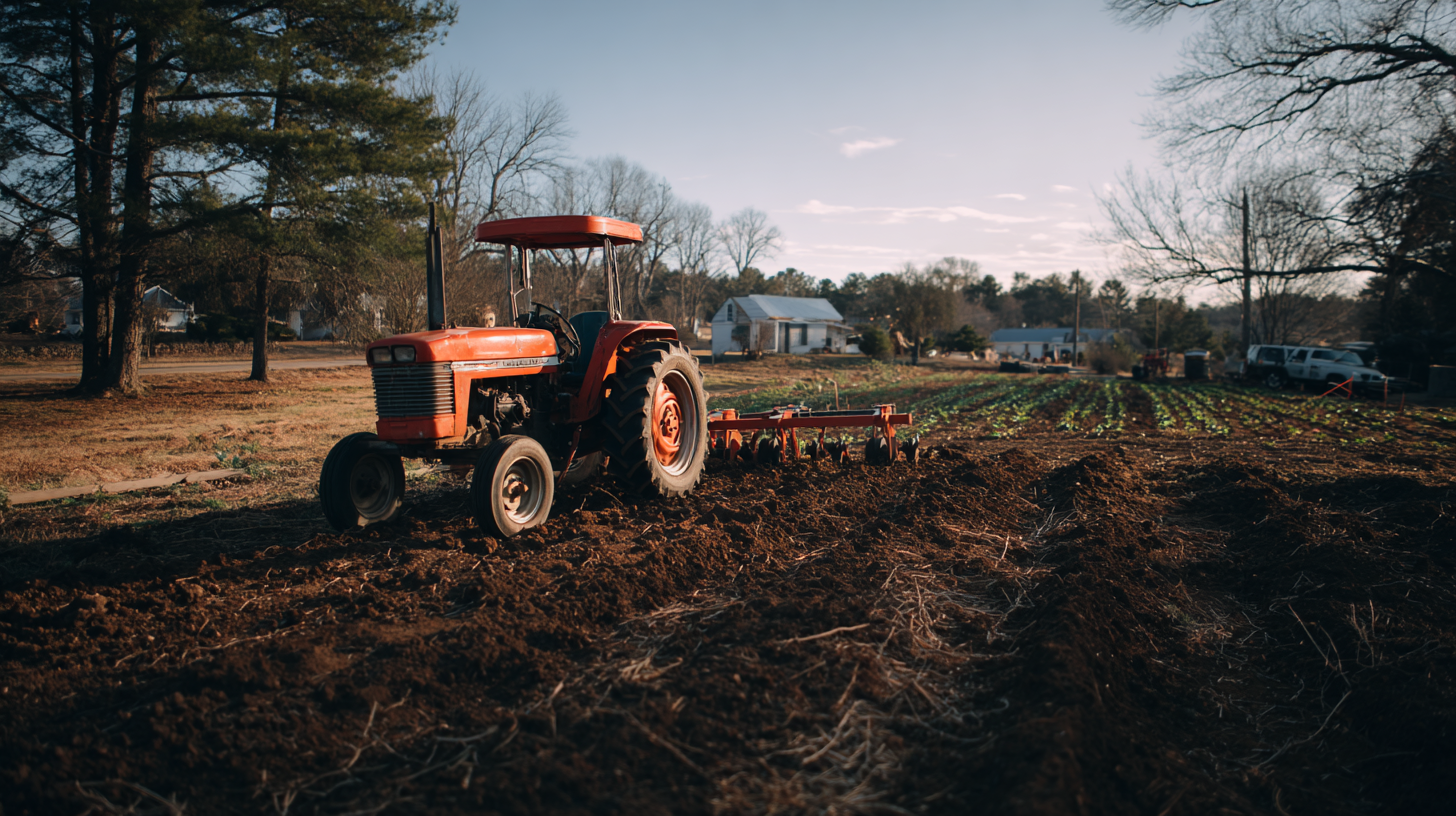 Mini farm tractors have emerged as essential tools in sustainable agriculture, particularly in the realm of soil management. One of the significant advantages of these compact machines is their ability to reduce soil compaction, which is often a major concern for farmers. Traditional farming equipment can exert excessive pressure on the soil, leading to dense, compacted layers that hinder root growth and water infiltration. In contrast, mini tractors, designed with lighter frames and specialized attachments, can traverse fields with minimal soil disturbance, thereby preserving soil structure and health.
Mini farm tractors have emerged as essential tools in sustainable agriculture, particularly in the realm of soil management. One of the significant advantages of these compact machines is their ability to reduce soil compaction, which is often a major concern for farmers. Traditional farming equipment can exert excessive pressure on the soil, leading to dense, compacted layers that hinder root growth and water infiltration. In contrast, mini tractors, designed with lighter frames and specialized attachments, can traverse fields with minimal soil disturbance, thereby preserving soil structure and health.
Moreover, the use of mini tractors aids in erosion control, a critical factor for sustainable farming practices. By enabling farmers to employ various conservation techniques, such as strip tillage or cover cropping, mini tractors help maintain a protective layer of vegetation on the soil surface. This reduces the velocity of water runoff, which can wash away valuable topsoil and nutrients. Additionally, their agility allows for more precise and targeted applications of tilling and planting, promoting more efficient land use and safeguarding against erosion. The integration of mini tractors into farming operations not only enhances productivity but also fosters a healthier, more sustainable ecosystem.
Mini farm tractors are increasingly recognized for their ability to promote sustainable agriculture, particularly when compared to traditional tractors. A comprehensive study by the Agricultural Engineering Association (AEA) indicates that mini farm tractors consume up to 30% less fuel than their larger counterparts. This reduction in fuel consumption translates to a significant decrease in greenhouse gas emissions. For instance, the average mini tractor emits approximately 11.4 kg of CO2 per hour of operation compared to 16.5 kg from traditional tractors, highlighting their environmental advantages and contributing to a lower carbon footprint in farming practices.
Moreover, mini farm tractors are designed to operate in smaller, more diverse farming environments that require less land disruption. The 2022 AgTech Report demonstrated that farms using mini tractors reported a 20% improvement in soil health due to reduced compaction and enhanced aeration. This is a critical factor, as healthy soils play a vital role in carbon sequestration and overall ecosystem sustainability. Additionally, the versatility of mini tractors allows farmers to maintain biodiversity on their farms, which is essential for ecological balance and resilience against climate change.
Mini farm tractors have emerged as vital tools in the quest for sustainable agriculture, particularly in their role in water conservation and efficient irrigation practices. These compact machines are equipped to handle a range of tasks, including the precise application of water, which reduces waste and promotes healthier crops. With adjustable settings and attachments, mini tractors allow farmers to implement drip irrigation systems and other advanced watering techniques that deliver moisture directly to the root zones, minimizing evaporation and runoff.
Moreover, the use of mini farm tractors aids in the management of soil health by facilitating effective tillage and crop rotation. Improved soil structure enhances its water retention capabilities, which, when combined with efficient irrigation methods, conserves water resources. By employing these tractors in sustainable farming practices, farmers can cultivate crops with a lower environmental impact while maintaining productivity.
This synergy between mini farm tractors and water-efficient techniques exemplifies a significant advancement in modern agriculture aimed at fostering resilience against climate variability and securing food sources for the future.
